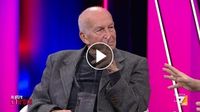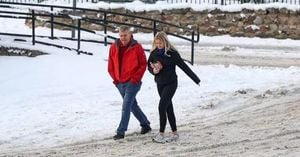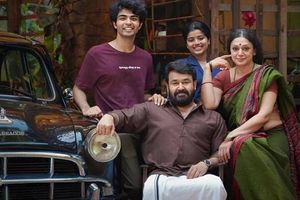Romano Prodi, former Prime Minister and President of the European Commission, found himself embroiled in controversy on March 22, 2025, during the presentation of his book "Il dovere della speranza". While addressing a question posed by a journalist from the program "Quarta Repubblica," Prodi reacted strongly to inquiries regarding the Manifesto di Ventotene, especially a passage concerning private property that had been cited by Italy's Prime Minister, Giorgia Meloni.
The journalist asked Prodi about a section of the Manifesto that stated, "La proprietà privata deve essere abolita, limitata, corretta, estesa caso per caso, non dogmaticamente in linea di principio". This statement led Prodi to respond with irritation, asking, "Ma che cavolo mi chiede? Io ho mai detto una roba del genere in vita mia?" He went on to accuse the journalist of lacking a sense of history, stating, "A cosa pensavano, secondo lei, al trattato dell'articolo secondo della Costituzione? Ma il senso della storia ce l’ha lei, o no?"
Prodi's outburst was reportedly sparked by the fact that the Manifesto’s principles were employed out of context by Meloni during a parliamentary session to criticize leftist ideologies. This act caused significant backlash and prompted the discussion that has dominated political discourse in recent days, especially since the Manifesto is a foundational document for European federalism, written in the midst of fascist oppression in 1941.
As the question heightened the tension, Prodi sarcastically remarked, "Ma lo so benissimo signora, non son mica un bambino, sa?" suggesting that the journalist's line of questioning was simplistic at best.
The exchange has sparked a flurry of reactions from various political circles. The Lega party publicly condemned Prodi's behavior, labeling his responses as rude and ungracious. They asserted that Prodi's treatment of the journalist, particularly for a simple inquiry, signified a political culture that stifles inquiry and engagement. Meanwhile, Giovanni Donzelli from Fratelli d’Italia expressed solidarity with the journalist, asserting that Prodi's aggressiveness—especially towards a woman—was inappropriate and disrespectful.
Prodi, in his remarks, emphasized the necessity of context in understanding the historical document, which was penned during a significant and troubling time in European history. "Era nel 1941, gente messa in prigione dai fascisti," he reiterated in order to highlight the gravity and historical implications of the text that Meloni referenced.
Despite the heated interaction, Prodi called for the left to unify and strategize towards forming a cohesive coalition for upcoming elections. He stressed, "Bisogna ricostruire la rete democratica e poi si penserà a chi farà la leadership," indicating that the upcoming political landscape necessitates a strategic focus on democratic partnership rather than individual leadership battles.
Ultimately, the incident not only unearths a profound rift in Italian political discourse but also emphasizes the challenges leaders face when dealing with historical texts that bear significant ideological weight. The opposition continues to hold Meloni's citation as a tactical maneuver to distort the founding ideas of a European democracy, showing that the implications of such political rhetoric extend well beyond the floor of parliament.
The fallout from Prodi's remarks will likely linger in political discussions as the Italian government grapples with its promises to the electorate amidst rising discontent regarding key issues such as education, health care, and foreign policy. The controversy serves as a reminder of the historical context that shapes contemporary debates and the pitfalls of using historical texts to serve current political agendas.








